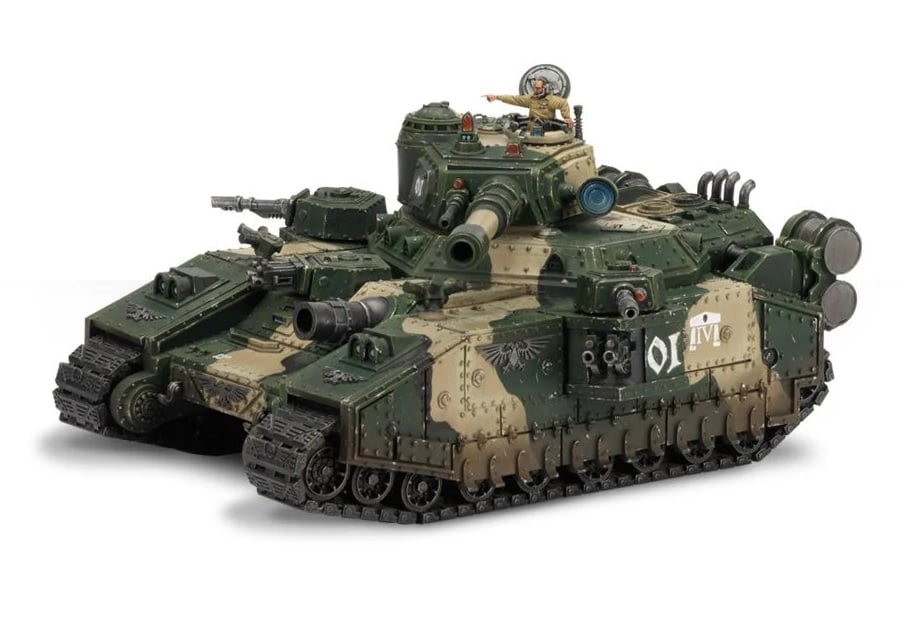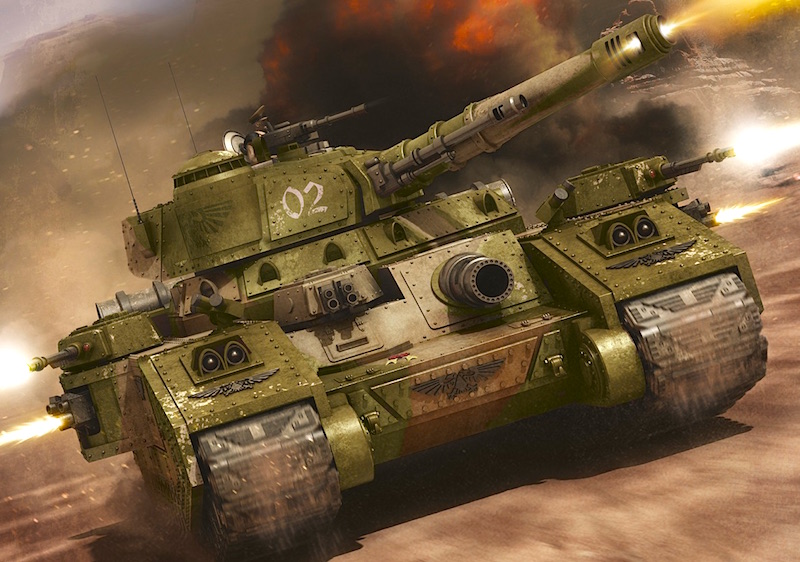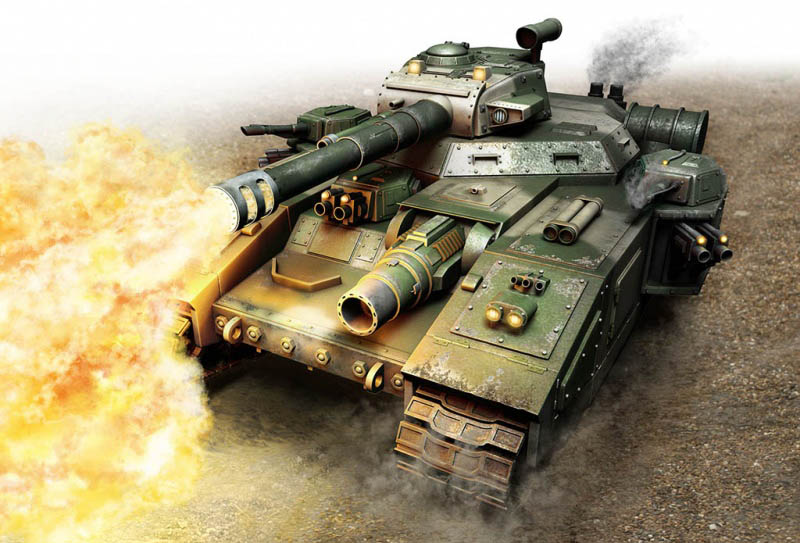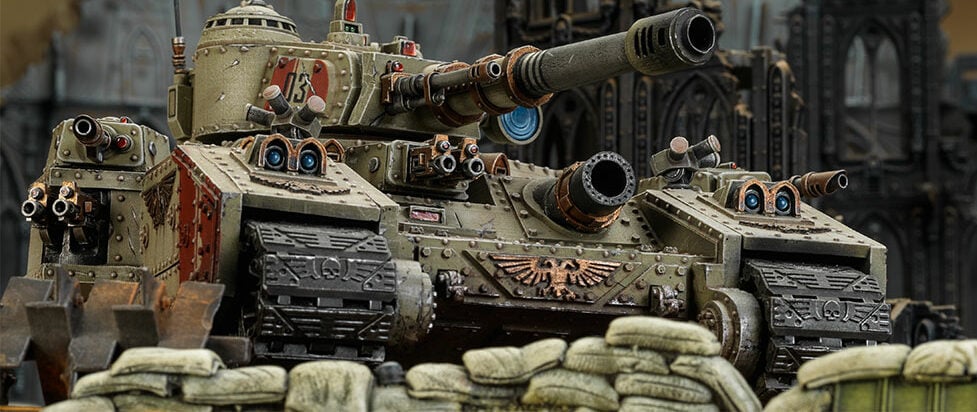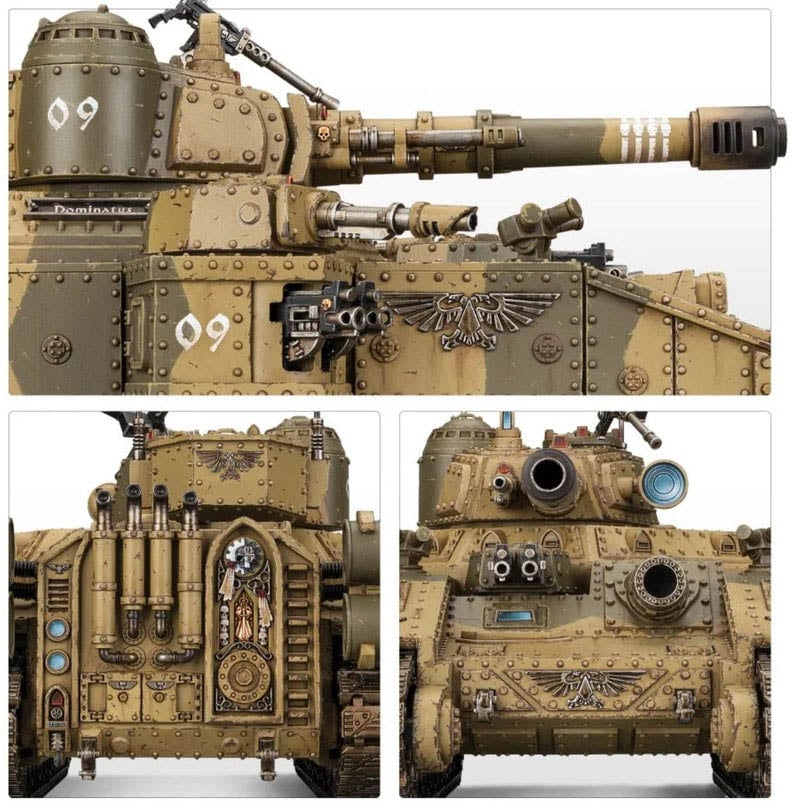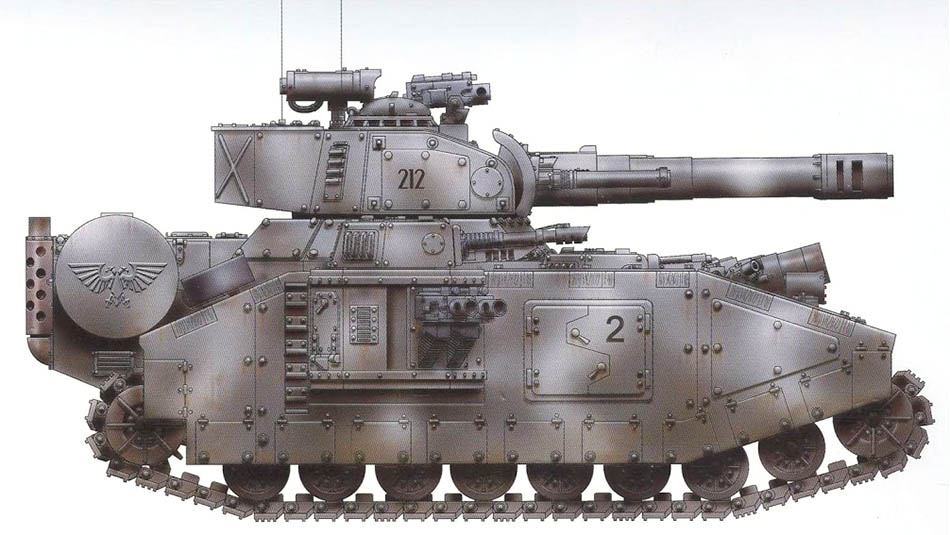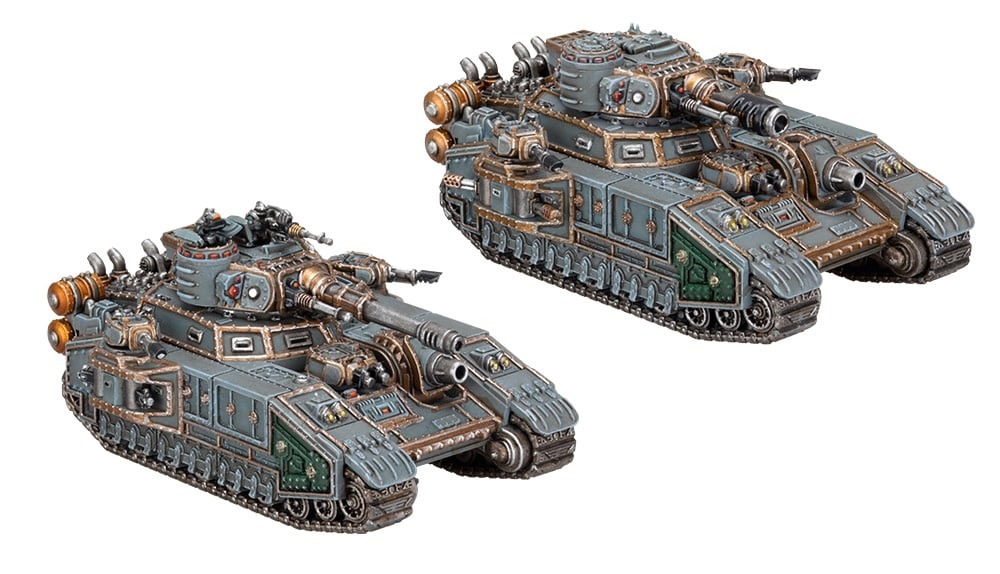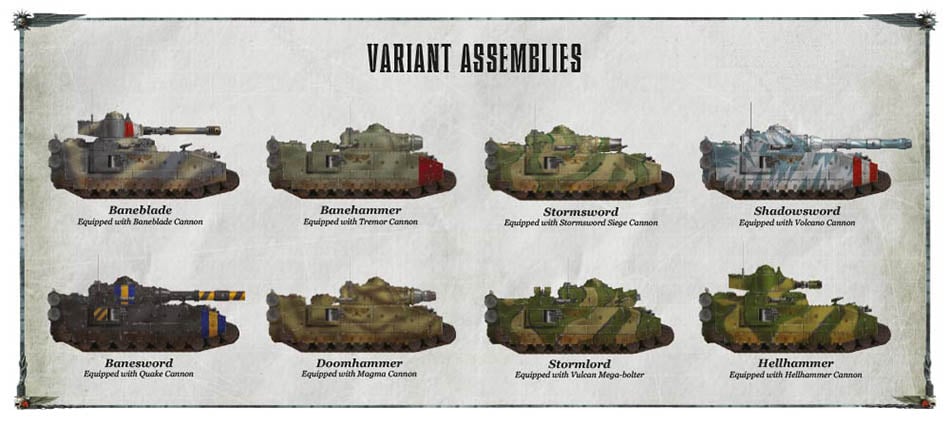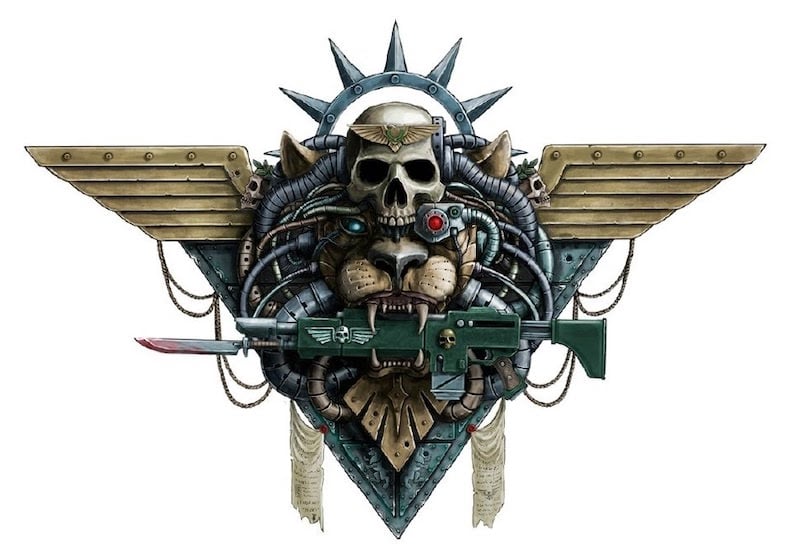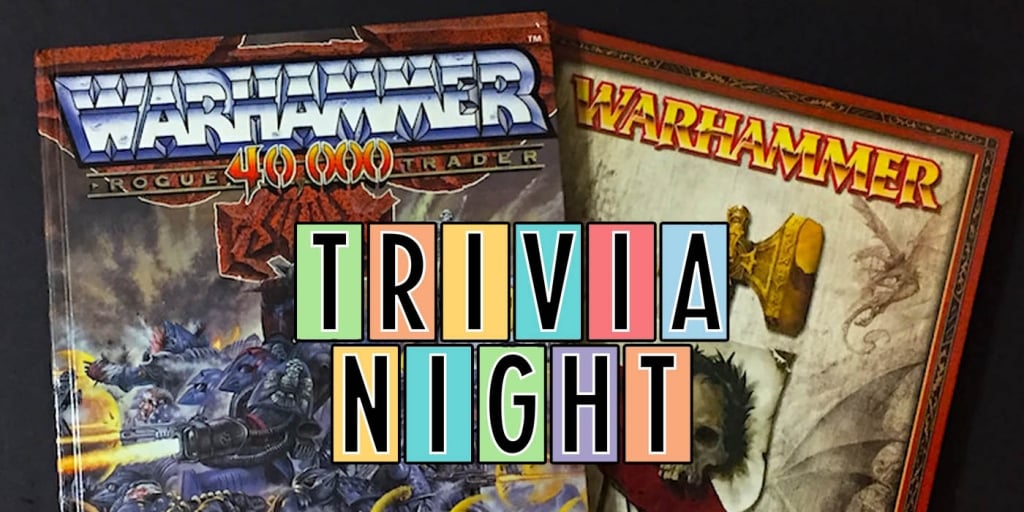Warhammer 40K: The Baneblade Superheavy Tank
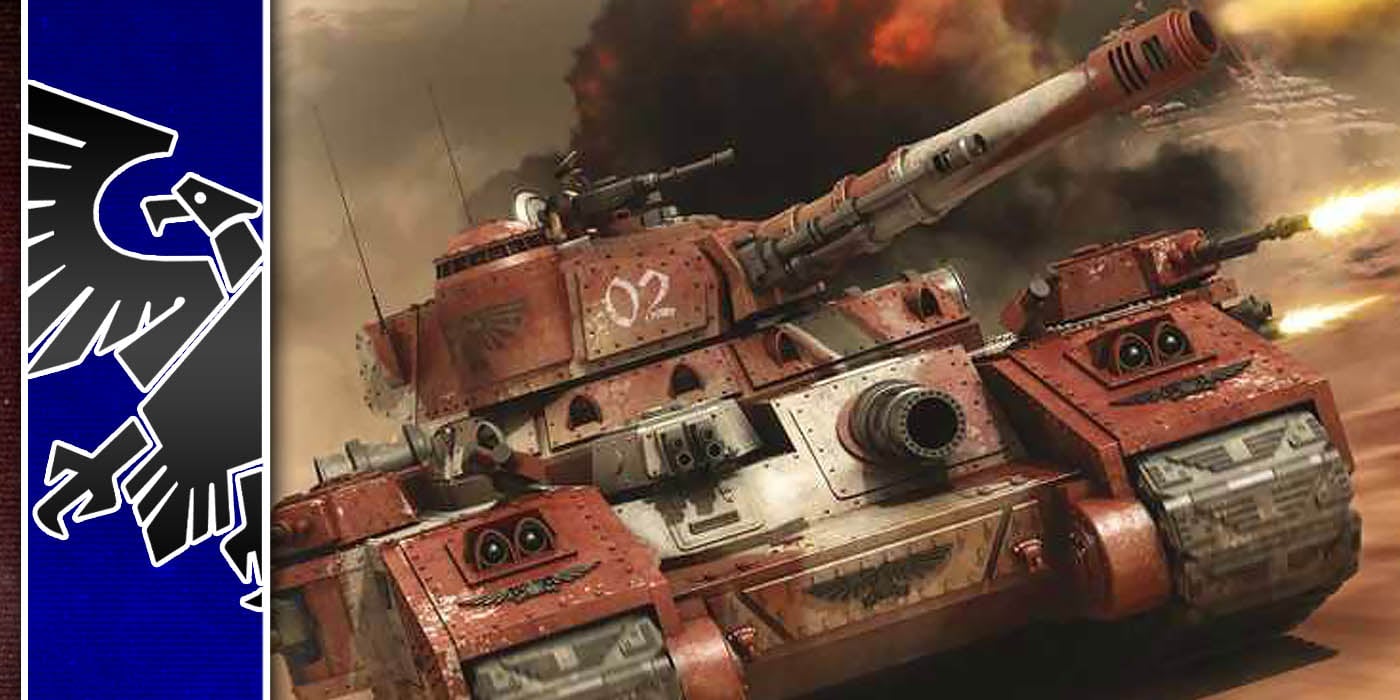
Come tech adept and learn of the mighty Baneblade superheavy tank, that crushes all the Emperor’s foes beneath its inexorable tracks.
The Baneblade is the primary super-heavy tank used by the Imperial Guard and is one of the largest and oldest tanks used by the Imperium. These massive machines often serve as the command vehicles for entire regiments or spearhead armored attacks, organized into their own super-heavy companies. Such is the power of a Baneblade that nothing short of another war engine, such as a Titan, would dare to face one in single combat.
Baneblade History
The Baneblade is among the oldest armored vehicles still in use by the Imperial Guard, based on rare Standard Template Construct technology dating back to the Dark Age of Technology. It is believed that entire divisions of Baneblades once served the Emperor of Mankind in his Great Crusade, but by the 41st Millennium an Imperial Guard regiment is considered fortunate if it has a single company of Baneblades, and many must make due with only one. The STC data necessary to create an original Baneblade, including the many advanced systems unique to its construction, is a closely-guarded secret limited to Mars — from which most true Baneblades originate – and a few other favoured Forge Worlds. Baneblades constructed on these worlds will be logged and registered with Mars, with their own identity number and name, and all information pertaining to their whereabouts and crew are regularly reported to their place of origination.As well, due to the nature of such a prime asset, the Adeptus Mechanicus shares responsibility with the Imperial Guard for selecting the crewmembers of a Baneblade.
The main Forge Worlds that produce Baneblades are — Mars, Lucius and Estaban VII
Baneblade Design
Armament
The super-heavy tank’s primary weapon is its turret-mounted Baneblade Cannon, a massive ten-metre-long battle cannon capable of launching rocket-assisted shells at targets many kilometers away. Such is the power of this cannon that its tremendous recoil can rock the massive tank back on its tracks and produces a deafening roar inside the tank in spite of the layers of armor and acoustic dampening material. The cannon’s double-sleeve construction allows for venting ports around its muzzle for exhaust gases to escape, preventing a dangerous build-up which could damage the weapon.< The co-axial Autocannon provides additional firepower but is more often used to fire magnesium ranging rounds for the Baneblade’s main cannon. The first gunner, stationed in the gunnery deck inside the turret, controls both weapons and aims through the secondary scope located next to the primary scopes atop the turret. The first loader is also stationed inside the turret, loading each of the metre-long shells into the breach and manning any pintle-mounted weapons. A small locker within the turret contains up to half a dozen shells while an enclosed shell elevator supplies additional shots from the magazine.
The Baneblade’s secondary weapon is its hull-mounted demolisher cannon. Of sturdier construction with a shorter, wider-mouthed barrel, the demolisher also fires rocket-assisted shells and uses the same method as the main cannon to vent exhaust gases. A reinforced mount allows the Baneblade to advance while firing the Demolisher. Demolisher shells can easily shatter ferrocrete and even liquify soft targets with their shockwaves alone. The second gunner, located in the tank’s forward compartment, is in charge of aiming and firing the demolisher cannon through auger sights while a rail sled from the magazine feeds shells into the weapon.
The Baneblade’s tertiary weapons consist of hull-mounted twin-linked heavy bolters, which can be fired by the driver when necessary, and two side sponsons, each one with a twin-linked heavy bolter and a lascannon. Each of the side-mounted heavy bolters has a limited 90° angle of fire though the lascannons, mounted on turrets atop the sponsons, have a larger range of 270°. The third gunner remotely controls these weapons from his station on the command deck, assisted by the third loader, but indeed any of the Baneblade’s many weapons can be remotely aimed and fired from this station. Ammunition for the heavy bolters are supplied by autoloaders which draw from 4,000-round hoppers each. If the autoloaders jam or malfunction, the third loader has to clear out and refill the entire system by means of the sponson access hatch located outside the tank, a dangerous task in the middle of combat. The lascannons draw energy directly from the powerplant, but if their shunts burn out from overuse those too must be replaced, though the cabling for these are located in the lower deck.
Variations on this standard include some Baneblades with a second set of side sponsons, while others may have them removed in place of even more side armor plating.
Armor
Wrapped in layers of Ceramite and Plasteel the Baneblade is among the most well-protected vehicles employed by the Imperial Guard; indeed it can survive countless weapon impacts which would reduce most other tanks to molten slag. Not even solid slugs fired by the feared Railguns mounted on T’au Hammerhead skimmer-tanks will penetrate the Baneblade’s frontal glacis, though a trio of simultaneous impacts can tear off one of the side compartments and cause spalling fragments within the interior. The frontal armor is even tough enough to withstand several seconds of fire from a Turbo Laser before the beam melts its way through. Against some weapons though the Baneblade is no match, as even a single shot from the Shadowsword‘s Volcano Cannon is capable of atomising this massive tank. When necessary the Baneblade is also equipped with Smoke Launchers to produce a cloud of blinding smoke.
Command & Control
Many and varied are the ancient technologies which go into producing a true Baneblade, making it more advanced than most other Imperial Guard vehicles. Besides its Searchlight the tank is packed with auspex gear, such as seismic sensors, with a multitude of augur lenses ringing the tank’s outer hull. Targeting arrays and two periscopes atop the tank’s turret allow the commander a clearer view of the battlefield thanks to their prodigious height. In addition the commander can look out through any of his gunner’s scopes and designate targets for them, assisted by the tank’s logic engines in locating an enemy’s weak points. Short- and long-range vox equipment allows for communication anywhere up to orbiting satellites, while special pulse-laser comms systems allows the Baneblade to share data with other super-heavy tanks to form a logic engine network; regular vehicles retrofitted with these systems can also join in.All of the information the Baneblade receives from these many sources are combined and displayed on the three-dimensional map chart located behind the commander’s station. Here an accurate map of the tank’s surroundings as well as all friendly and enemy contacts are displayed, allowing the commander to plan out his operations.
Engine
The Baneblade is powered by a massive multi-fuel powerplant, located in the rear of the tank, which produces the enormous amount of energy necessary for the tank to function. Like powerplants found in the Leman Russ or Chimera vehicles it is capable of running on any type of fuel. When the tank is stopped the powerplant is normally left running and ready to go, however it also must undergo full maintenance and service check every six months during which it is completely shut down. The frequency of these stops increases depending on the type of fuel used or the battlefield conditions, and it is quite common to undergo one prior to a major engagement or long patrol. In cases when the powerplant is cold a battery supply allows for limited functionality of the tank’s systems: for example the heavy bolters can still be used as normal while the lascannons will be good for only a few shots.
Variants
A number of different super-heavy tanks are based on the Baneblade’s chassis.
- Banehammer
- Banesword
- Doomhammer
- Hellhammer
- Stormblade
- Shadowsword
- Stormsword
- Stormhammer
- Stormlord
- Stormsabre
“Counterfeit” Baneblades
The monopoly Mars and a select few Forge Worlds have on the Baneblade’s STC data, combined with the never-ending need for these behemoth machines, has led to the development of ‘counterfeit’ Baneblades. Officially categorized by the Adeptus Mechanicus as second-generation Baneblades, these are produced by Forge Worlds eager to secure large military contracts but who do not have the complete STC data necessary to produce a true Baneblade. Such Baneblades might use normal Battle Cannon ammunition in place of special rocket-assist rounds, or have a normal Battle Cannon in place of the Demolisher. They might also have inferior armor bracing or engine performance or less advanced comms arrays and logic engines.
~For the Emperor!

